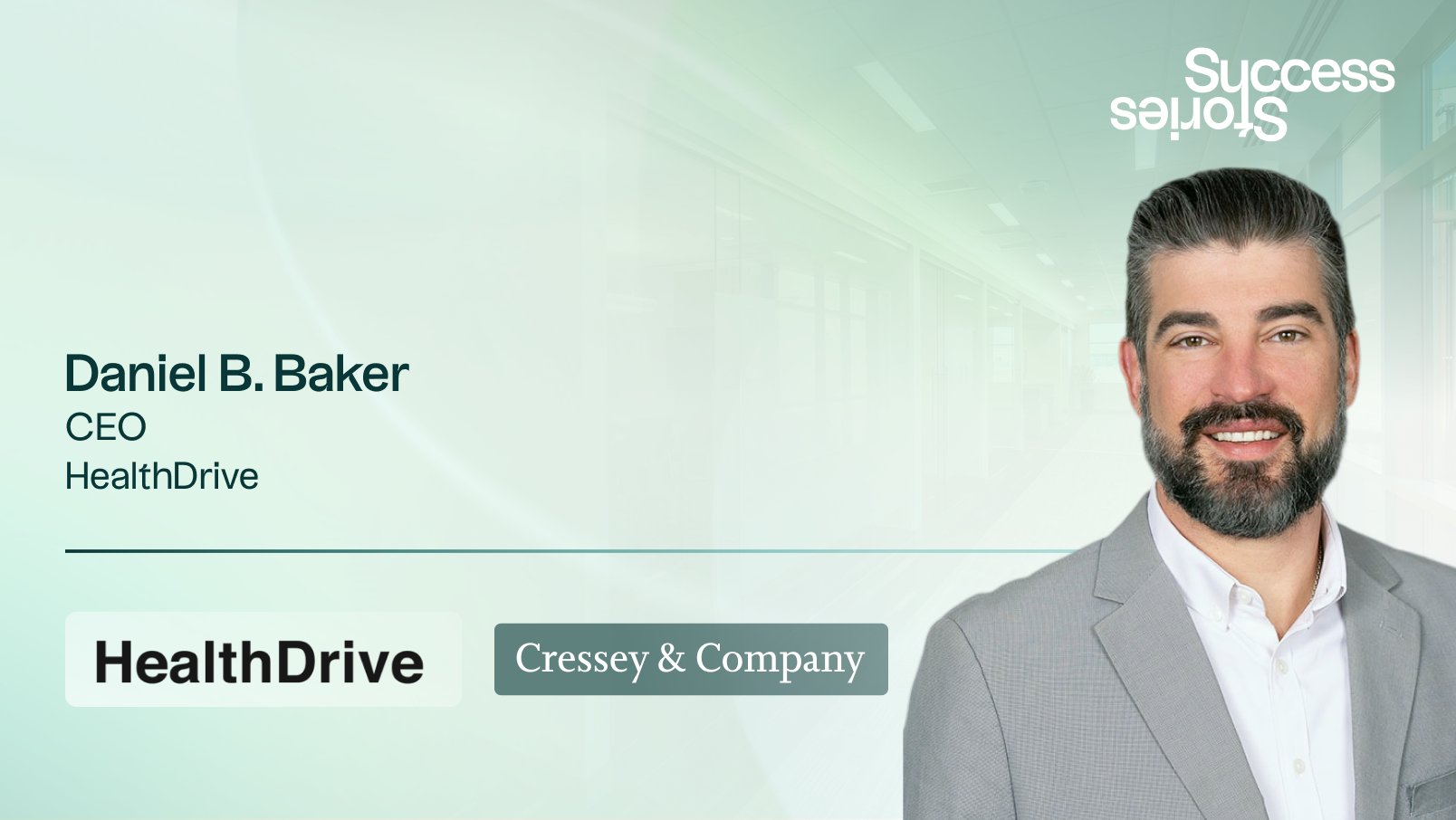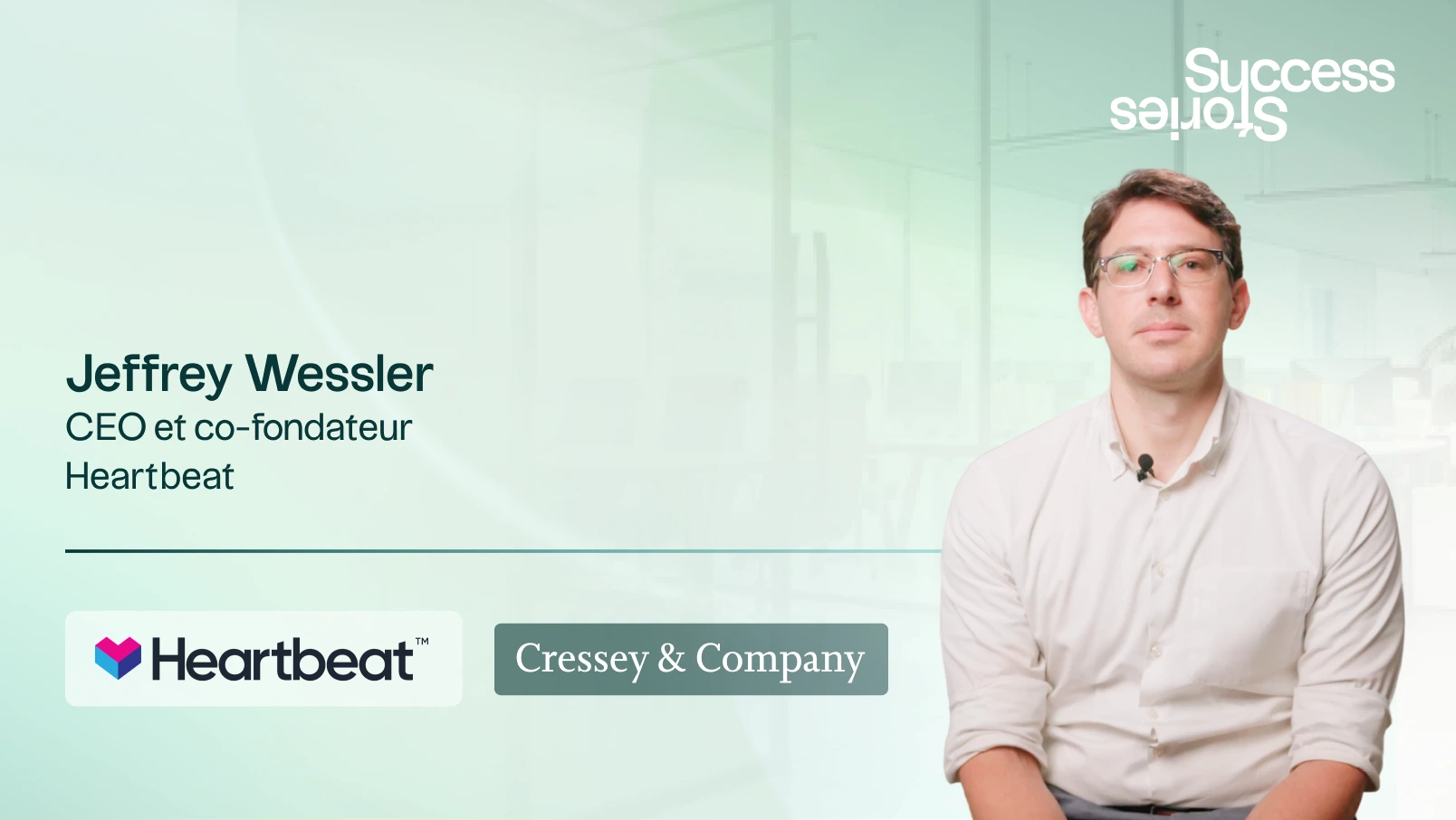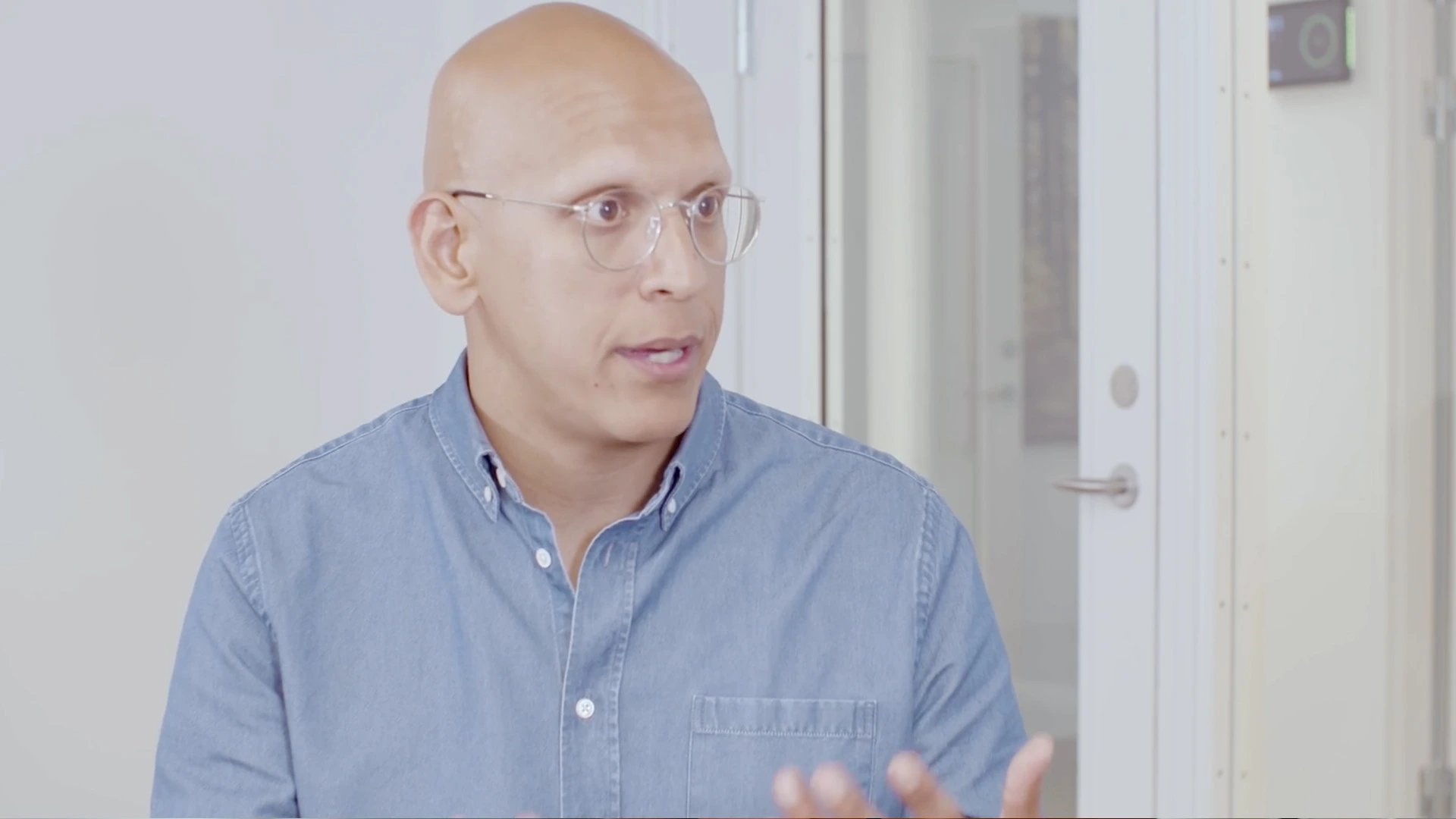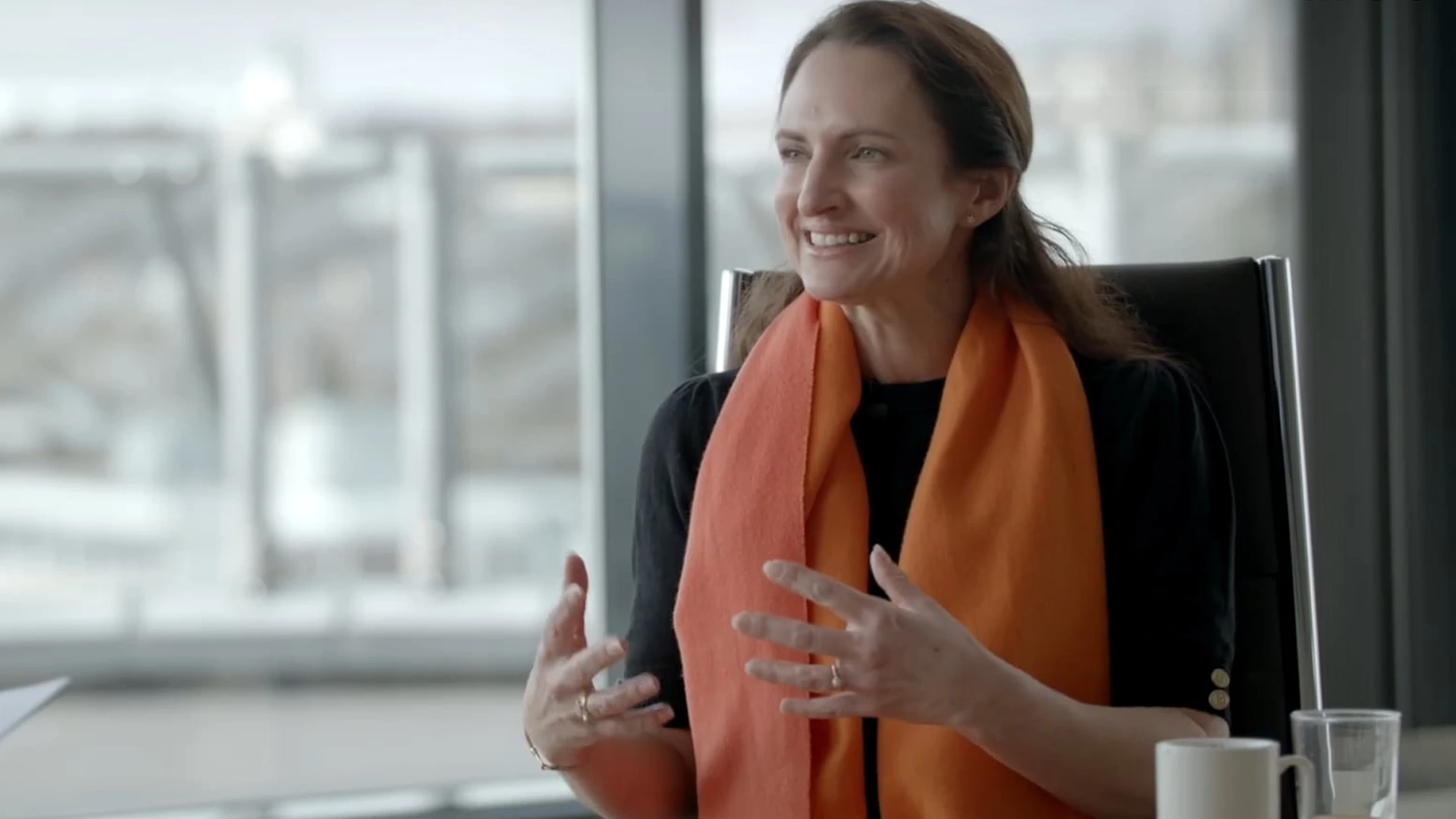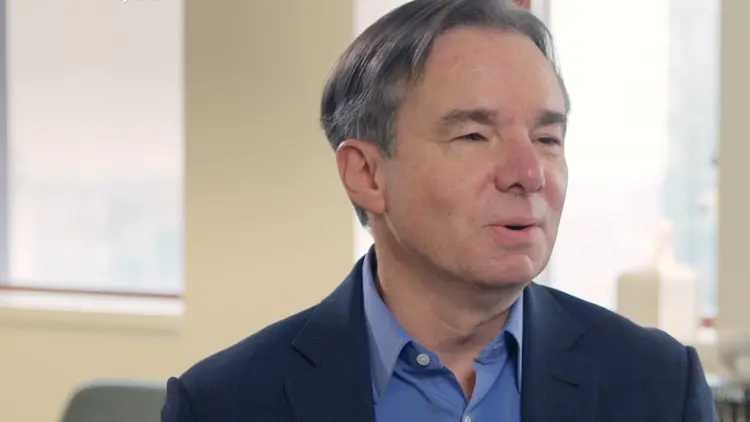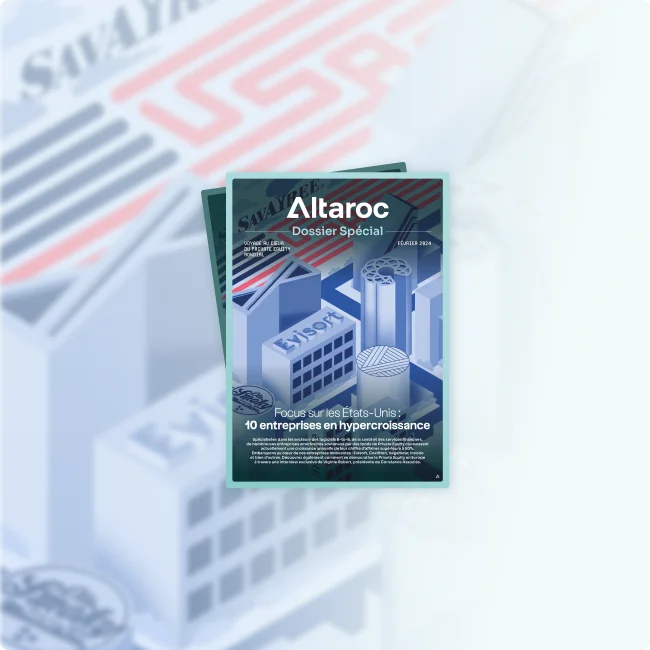Private equity is more than just a capital injection. It's the alliance of a long-term strategic partner, capable of mobilizing significant resources, structuring a sustainable growth trajectory and aligning interests around a clear, ambitious vision shared with founders and management teams. From Deezer to Back Market, via Picard Surgelés, some of the most successful companies of recent times bear the discreet - but decisive - signature of funds that believed in them. We take a look at a world where finance is becoming a lever for the future.
Creating industrial value
A source of financing
Private equity is much more than just financial leverage: it's a powerful source of resources to enable a company to change scale, course and sometimes even destiny. Unlike traditional forms of financing such as bank loans or stock market flotations, private equity offers substantial resources, deployed with agility, to serve ambitious projects.
Whether it's :
- Sustain organic growth,
- Make a strategic acquisition,
- Invest in technological transformation,
- Or conquer new international markets,
Private equity funds are tailored to the specific needs and priorities of each company.
It is this ability to finance tailor-made projects that makes it such a powerful and effective tool.
But what really sets private equity apart is its exceptional flexibility.
It adapts to every stage in a company's life, with specific approaches and customized solutions:
- A young start-up in the creation phase? Venture capital doesn't just finance: it catalyzes innovation, secures the first strategic milestones and gives entrepreneurial ambition the means to express itself fully.
- A company in a growth phase? Development capital acts as a structuring gas pedal, providing the resources needed to invest, strengthen and structure the company, and confidently take it to new levels of performance.
- A more mature company or one being transferred? LBOs accompany changes in shareholder structure and provide new strategic impetus.
- A company in difficulty? Turnaround capital is used to restructure, turn around and relaunch.
In all these cases, private equity is present, with an adapted logic and a common ambition: to create value over the long term.
Another strong point is that this financing method breaks away from rigid schemes.
It can :
- Adjust to the level of risk specific to the project,
- Be a minority or majority shareholder, depending on the degree of involvement desired by management.
In short, private equity is not a static solution: it's an active, committed partner, capable of providing much more than just financing. It's a catalyst for growth, connecting managers with a global network of experts, customers, strategic partners and potential acquirers. It's also a transformation gas pedal, helping to structure governance, recruit the right profiles, penetrate new markets and lay the foundations for sustainable value creation.
For ambitious companies, this is often the trigger for a real change of scale.
Strategic support
Beyond their financial contribution, private equity investors are distinguished by their active strategic involvement in the companies they support. Unlike passive shareholders or traditional lenders, these investors take on a hybrid role, halfway between committed shareholder and growth partner.
From the moment they acquire a stake in a company, private equity investors play a structuring role, using a methodical approach to take the company through a decisive phase. This involves overhauling or optimizing internal organization, setting up robust reporting systems with real-time KPIs, and above all professionalizing governance.
In concrete terms, this may mean setting up a strategic committee that meets quarterly, strengthening the board of directors with experienced independent profiles, or recruiting key talent (CFO, COO, CMO) to support growth ambitions. These levers, often neglected in the early stages of development, are essential if we are to move from an intuitive entrepreneurial model to a resilient, capable and attractive structure for future partners or acquirers.
In certain cases, particularly for companies undergoing transformation or in a rapid expansion phase, investors can go even further and offer targeted operational support: assistance with internationalization, management of a merger-acquisition project or improvement of internal processes (finance, IT, HR, etc.).
Creating financial value
Private equity funds not only create industrial value, but also financial value. They use powerful levers to increase the company's overall value over the medium term (generally 4 to 7 years), with a view to resale or IPO.
In concrete terms, several powerful levers are being activated to accelerate this ramp-up:
🔹 Enhancing growth: funds get directly involved in business development, opening doors, structuring strategy and supporting expansion into new markets. The result: sales climb, often at a much higher rate than in previous years.
🔹 Boosting profitability: with an external eye, high-performance steering tools and sector benchmarks, investors help managers improve margins, optimize costs and strengthen the value chain. All this translates directly into higher EBITDA, a key performance indicator.
🔹 Optimize the financial structure: thanks to structures such as LBOs, part of the operation is financed by debt, which amplifies the return on equity (ROE) if performance is up to scratch. The gradual repayment of this debt then reinforces the company's financial strength.
🔹 Valuing the company at the right time, at the right price: beyond the numbers, the funds actively work to make the company more attractive on the market :
- By professionalizing governance,
- By making the business model clearer and more predictable,
- By consolidating our competitive position.
All this means that, at the time of exit, the company can be resold at a higher multiple - in other words, at a better price.
🔹 Preparing the exit from the outset: in private equity, the exit is prepared from day one. As soon as they take an equity stake, investors work in parallel on two fronts: creating operational value and building a clear, credible and attractive exit scenario. They identify potential future acquirers - whether industrial players, other funds or the market via an IPO - and align the growth strategy accordingly.
This means fine-tuning the company's positioning, reinforcing its differentiators, rigorously documenting its performance and building an equity story capable of seducing the market. Each stage of development is designed to enhance the asset's long-term "desirability": nothing is improvised, everything is orchestrated to maximize liquidity and returns at the time of sale.
Private Equity at the heart of some magnificent entrepreneurial stories
Deezer: a streaming champion powered by venture capital
Founded in Paris in 2007, Deezer is one of Europe's leading music streaming platforms.
Its ambition: to offer unlimited access to music via a freemium model, at a time when illegal downloading still dominated the market.
From the outset, Deezer drew on the support of venture capital funds such as AGF Private Equity (now Idinvest Partners) and Access Industries, a group that is also a shareholder in Warner Music. These investors not only provide significant financing, but also decisive strategic support. In particular, they help structure the business model, professionalize governance, negotiate music rights with the majors and support international expansion.
Their involvement enabled Deezer to grow from an innovative start-up to an international scale-up, with a presence in over 180 countries and a catalog of over 90 million titles. In 2022, Deezer goes public on Euronext Paris via a merger with an SPAC, achieving an initial valuation in excess of 1 billion euros.
This case illustrates perfectly the role of venture capital as a growth catalyst for technology companies: providing funds, of course, but above all structuring strategic support, capable of transforming an ambitious vision into international success.
Source : https://www.lesechos.fr/2012/10/le-francais-deezer-leve-100-millions-deuros-364187
BackMarket: growth supported by development capital
Back Market is a French company founded in 2014, specializing in the online sale of refurbished electronic products. It offers a sustainable alternative to buying new products, fully in line with a circular economy logic.
Right from the start, Back Market benefited from the support of development capital investors. These funds enabled the company to finance its international expansion, improve its technological platform and strengthen its teams.
The various fund-raising campaigns have enabled Back Market to accelerate its growth to the point of becoming a unicorn (valuation in excess of one billion euros).
- 2014-2016: launch in France with a number of partner sellers specializing in refurbished products.
- 2017-2018: start of European expansion (Germany, Spain, Italy) and recruitment of technical teams.
- 2018-2020: change of scale with entry into the US market and major technical improvements (UX, quality control algorithms, returns logistics).
- 2021-2022: consolidation and transition to unicorn status. In May 2021, Back Market raises €276 million, followed in January 2022 by a record €450 million, taking its valuation to €5.1 billion.
These milestones have established its business model in a context where the circular economy and responsible consumption are gaining ground.
Picard Surgelés: A success story driven by strategic LBOs and an ambitious vision!
Since leaving the Carrefour fold in 2001, Picard has been a prime example of how private equity funds can support, structure and accelerate the transformation of a market leader. At every step along the way, different investors have contributed more than just capital: a new strategic vision, expansion of the distribution network, diversification of the offer (organic, made-to-measure, digital), professionalization of key functions and reinforcement of operational efficiency.
Each investment cycle has enabled Picard to reach a new level of growth, while paving the way for a smooth handover to the next partner:
- 2001 - First LBO with Candover Partners: refocusing on premium frozen foods, agile governance, upmarket positioning.
- 2004 - BC Partners: profitable growth, supply chain optimization, process modernization, network expansion.
- 2010 - Lion Capital: digital acceleration, organic and responsible ranges, test of an international opening.
- 2024 - Back to family roots with the Zouari family: a new era focused on sustainability, local roots and responsible innovation.
Private equity is much more than a financial tool: it' s a gas pedal of dreams, a booster of projects, a revealer of potential. It transforms ambitious ideas into concrete successes, thanks to a unique combination of financial resources, strategic know-how and entrepreneurial confidence. By investing in innovative, sustainable or fast-moving companies, private equity investors provide the impetus needed to reach decisive milestones. The success stories of Deezer, Back Market and Picard are no exception: they illustrate the strength of a model that supports companies at key moments, always with a clear objective in mind - to create and share value. The future of private equity? It's being written today, with boldness, commitment... and a healthy dose of optimism.
Emmanuel PAPADACCI-STEPHANOPOLI - Managing Director, Village by CA Paris
Question 1: Emmanuel, can you tell us a little about your role?
I run the Village by Crédit Agricole Paris, an innovation ecosystem that supports over 150 startups and numerous large corporations. My role is to build bridges: to help startups secure their growth and, at the same time, enable large corporations to integrate innovation faster and more effectively by drawing on best practices and insights from the tech sector.
In concrete terms, I'm a strategist, a catalyst for synergy and a facilitator of a place where the future of our economy is conceived.
Question 2: It's often said that France struggles to innovate. What's your take on this? Can you tell us about French Tech?
It's a common misconception.
France has long suffered from a lack of capital and visibility, but today French Tech is one of the most dynamic ecosystems in the world. 5% of jobs in France depend on this ecosystem, which doubles every 3 years. Paris is one of the world's top 5 innovation hubs, with unicorns like Doctolib, Back Market and Mirakl. Where we need to make progress is in large-scale transformation: moving from prototype to industrialization, particularly in deeptech, healthcare and the ecological transition.
But France's entrepreneurial energy is undeniable, and is now attracting leading international investors.
Question 3: Private equity and bank financing are two ways of developing a company. Can you give us your vision of the impact and the strategy of the manager when he uses one or the other?
The choice between private equity and bank financing is not just a question of figures, it's a question of strategy. Bank financing is a powerful tool that leaves the manager alone. The bank lends its support, but remains outside the capital: the direction and governance rest entirely with the entrepreneur. Private equity, on the other hand, brings a real partner on board: a champion of growth, who brings not only funds but also strategic expertise, a network and a shared vision.
Where credit optimizes solidity and control, private equity transforms the SME into an ETI, and then into a future major corporation. The former is a lever for sustainable growth; the latter, an engine for change of scale.
Question 4: There's talk of a wave of entrepreneurship. What do you think? What is the profile of the French entrepreneur?
The wave is real: France has never had so many entrepreneurs.
The profile of the French entrepreneur has changed:
- More educated,
- More international,
- And more sensitive to social issues...
Many start up with a dual ambition: to succeed economically and to have a positive impact. This can be seen in tech for good, healthcare and inclusion. What sets them apart: resilience and the ability to pivot very quickly, an essential skill in an uncertain world.
Warning:
This article is purely informative and does not constitute a personalized recommendation, legal or tax advice or an investment strategy.
The information presented is based on current conditions and is subject to change. You are invited to contact your advisor to ensure that the products mentioned are suited to your asset profile.
Investing in private equity entails risks of capital loss and liquidity. The performance of an FIA is never guaranteed; it depends on the profitability of the assets in the portfolio. Past performance is no guarantee of future performance.
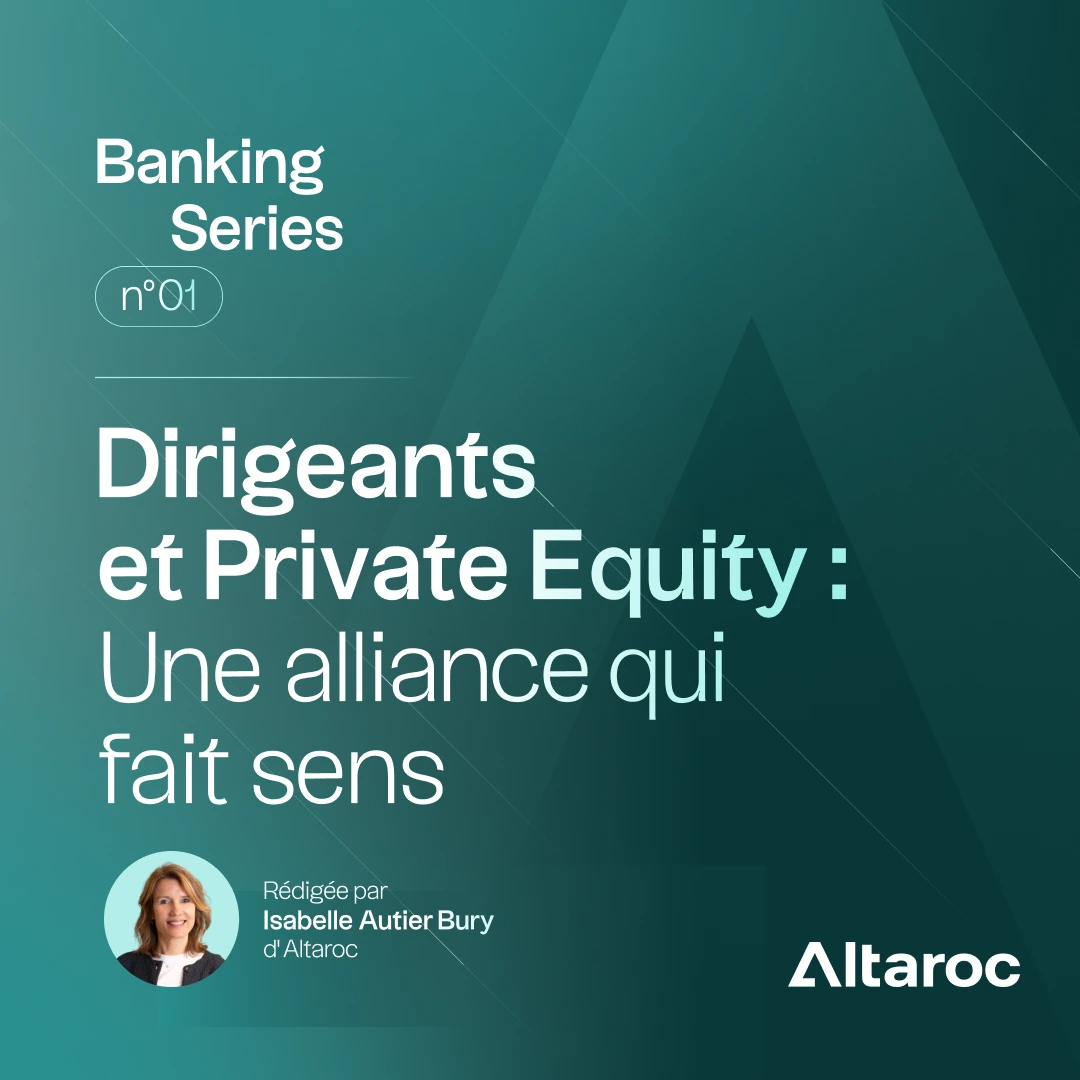


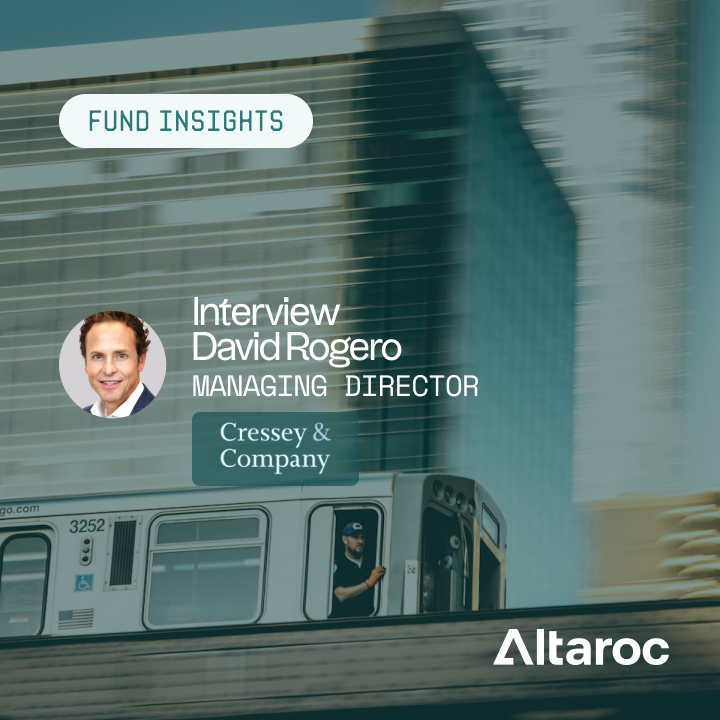


.webp)


